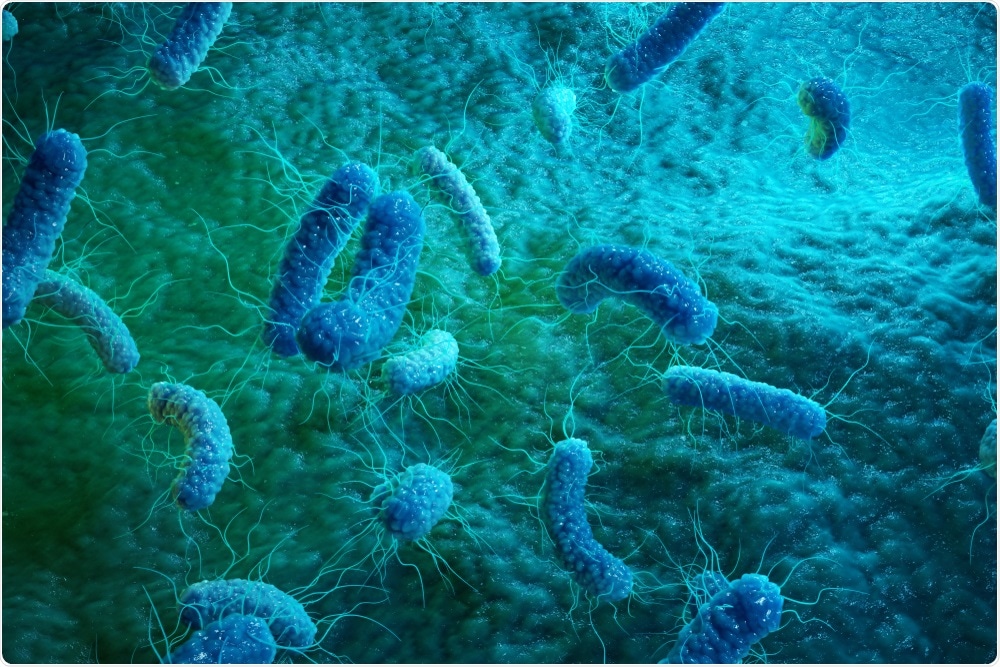Researchers in Switzerland have found that limiting the use of antibiotics may not, by itself, be enough to curb the emergence of resistant bacteria. They say it may be necessary to focus on preventing the superbug infections in the first place.
 Rost9 | Shutterstock
Rost9 | Shutterstock
"If you want to control the spread of resistance genes, you have to start with the resistant microorganisms themselves and prevent these from spreading through, say, more effective hygiene measures or vaccinations," says study author Médéric Diard form the University of Basel.
A major public health issue around the world
The emergence of antibiotic-resistant bacteria represents a major public health issue, with the World Health Organization (WHO) saying it represents a major public health concern in every single country.
According to the Centers for Disease Control and Prevention (CDC), the superbugs infect at least two million people every year in the United States alone, where they cause at least 23,000 deaths.
The superbugs develop resistance when they acquire resistance genes through a process called horizontal gene transfer (where genetic material moves between bacteria), as well as through spontaneous mutation.
These genes then equip the bacteria with various mechanisms they can use to survive treatment with antibiotics. Examples include stopping the antibiotic from passing through the bacterial cell wall and ejecting it or inactivating it if it does manage to enter.
Health authorities are restricting antibiotic use, but this might not be enough
While antibiotics successfully eliminate bacteria that are susceptible to their effects, the ones that carry resistance genes survive and are left behind following treatment. Therefore, the more antibiotics are used, the more resistant bacteria spread and the more infections occur that are difficult to treat. This has led to many health authorities calling for the use of antibiotics to be restricted.
However, Diard and team found that simply limiting antibiotic use may not be enough to combat the resistance problem. They say the presence of persisters means the resistance can spread even when antibiotics are not used.
These bacteria can dampen down their metabolism to the point that they are dormant and barely alive and, once in this state, antibiotics are ineffective against them.
Salmonella is a bacterium that has the potential to become a persister once it invades gut tissues, where it can stay dormant for many months, before “waking” up and triggering infection once conditions become favorable. However, the new study has found that even if Salmonella does not cause infection, it can still pose a threat because it carries resistance genes in the form of plasmids.
As reported in the journal Nature, studies in mice showed that when the plasmid-carrying Salmonella persisters awake from their dormant state, they can easily transfer their resistance genes. Not only can they share the genes with members of their own bacterial species, but they can also transfer them to any species that is receptive to horizontal gene transfer such as Escherichia coli.
By exploiting their persistent host bacterium, the resistance plasmids can survive for a prolonged period in one host before transferring into other bacteria.”
Wolf-Dietrich Hardt, Co-Author
The team points out that this transfer of the resistance genes can occur irrespective of whether antibiotics are used.
Next, the researchers want to find out whether their findings are replicable in pigs and other animals that commonly developed Salmonella infections. They also plan to investigate whether probiotics or vaccination stops the antibiotic resistance spreading in these animals.
Restricting the use of antibiotics is important and [...] indeed the right thing to do, but this measure alone is not sufficient to prevent the spread of resistance.”
Médéric Diard, Study Author
Journal reference:
Bakkeren, E., et al. (2019). Salmonella persisters promote the spread of antibiotic resistance plasmids in the gut. Nature. nature.com/articles/s41586-019-1521-8.